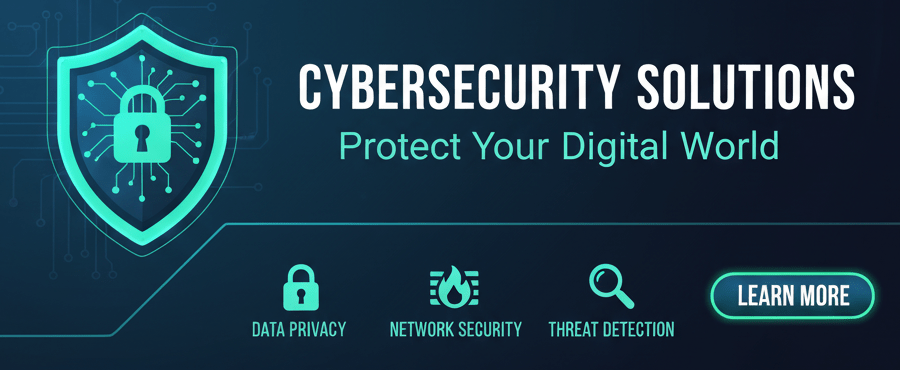In today’s interconnected world, we rely on technology more than ever. From banking and shopping to communication and entertainment, we do much of our daily lives online. This increased reliance on technology also means we’re more vulnerable than ever to cyber threats. Understanding the importance of cybersecurity and taking steps to protect your data is no longer optional; it’s essential.
The Growing Threat Landscape
Cyber threats are constantly evolving, becoming more sophisticated and harder to detect. These threats come in many forms:
- Phishing: Fraudulent emails or messages designed to trick you into giving up sensitive information like passwords or credit card numbers.
- Malware: Malicious software that can infect your devices, steal data, or disrupt your system.
- Ransomware: A type of malware that encrypts your files, holding them hostage until you pay a ransom.
- Data Breaches: Unauthorized access to sensitive data stored by organizations, leading to the exposure of personal information.
- Denial-of-Service (DoS) Attacks: Attacks that overload websites or servers with traffic, making them inaccessible to users.
Protecting Your Personal Data
Here are some practical steps you can take to protect your personal data online:
- Strong Passwords: Use strong, unique passwords for each of your online accounts. Avoid using easily guessable information like your birthday or name.
- Password Managers: Consider using a password manager to securely store and manage all your passwords.
- Two-Factor Authentication (2FA): Enable 2FA whenever possible to add an extra layer of security to your accounts.
- Be Skeptical of Links and Attachments: Be cautious when clicking on links or opening attachments in emails or messages from unknown senders.
- Keep Software Up-to-Date: Regularly update your operating system and software to patch any security vulnerabilities.
- Secure Your Home Wi-Fi: Use a strong password and encryption to protect your home Wi-Fi network.
- Be Aware of Public Wi-Fi Risks: Avoid conducting sensitive transactions when using public Wi-Fi networks.
Cybersecurity for Businesses
Businesses face even greater cybersecurity risks due to the sensitive data they handle. Here are some key cybersecurity practices for businesses:
- Employee Training: Educate employees on cyber threats and best practices for data security.
- Firewalls and Antivirus Software: Implement robust firewalls and antivirus software to protect against malware and unauthorized access.
- Data Encryption: Encrypt sensitive data both in transit and at rest.
- Regular Security Audits: Conduct regular security audits to identify and address any vulnerabilities in your systems.
- Incident Response Plans: Develop and implement incident response plans to quickly address security breaches.
The Future of Cybersecurity
The field of cybersecurity is constantly evolving as cyber threats become more sophisticated. Emerging trends include:
- Artificial Intelligence (AI) in Cybersecurity: Using AI and machine learning to detect and prevent cyberattacks.
- Zero Trust Security: Shifting security away from perimeter-based approaches and towards verifying every user and device attempting to access resources.
- Behavioral Biometrics: Analyzing user behaviors to identify anomalies that may indicate a security breach.
Conclusion
In the modern digital world, cybersecurity is a fundamental need, not an option. Whether you are an individual or a business, you need to take steps to protect yourself from cyber threats. By implementing strong security practices, staying informed about emerging threats, and constantly adapting to the evolving landscape, you can safeguard your data and contribute to a more secure online world. Proactive measures are key for navigating the complexities of the digital age safely and responsibly.




